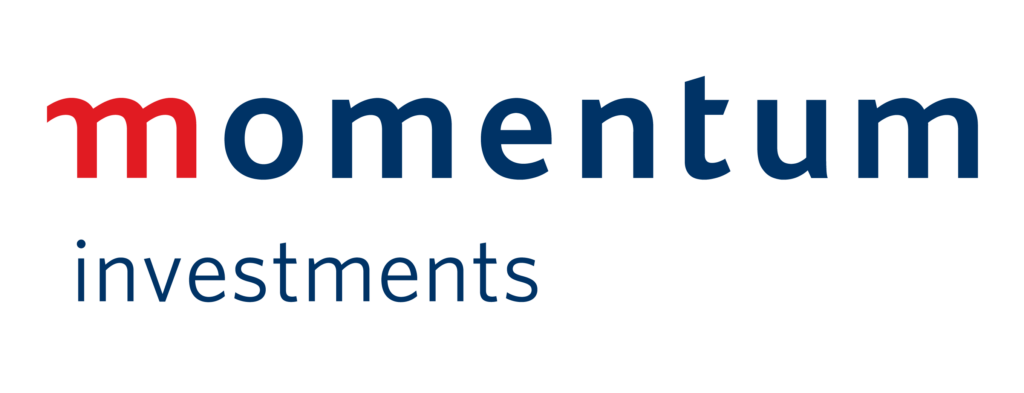The Momentum Income Plus Fund has a unique value proposition in that it not only aims to provide a high level of income of CPI plus 2 to 3%, but it also provides access to a more diversified universe of companies relative to what is available in the listed market.
The fund aims to outperform by maximizing its allowable private debt exposure to middle-market companies, a segment of the credit market that has historically delivered enhanced risk-adjusted returns. In an increasingly volatile world, the Momentum Income Plus Fund has insulated investors from declining valuations, delivering returns uncorrelated with macro-economic developments and traditional asset classes. Drawdowns in the fund have been limited to periods of extreme market shocks and the volatility in such periods has been negligible when compared to government bonds and listed equity, thereby making the fund a valuable building block in the construction of robust solutions for clients.
Despite its resilience, limited research has resulted in several myths circulating around credit. These include that rising interest rates and slow economic growth are significant threats to the asset class and will lead to higher defaults. Credit investments are however structured to be resilient to interest rate and economic cycles. Firstly, higher interest rates have a limited impact on valuations as securities predominantly reference a floating rate. Secondly, investments are predominantly buy-and-hold instruments and therefore lenders make their investment decisions on a through-the-cycle basis as change in the macroeconomic environment is expected over the investment horizon. Thirdly, it is market practice that borrowing companies maintain well in excess of two times their interest payment coverage ratios. Finally, our research shows that the credit quality of several JSE-listed large- and mid-cap companies has actually improved between 2019 and 2022.
Other myths include that there are no growing sectors in the South African economy, that rand hedges only reside in the largest listed companies, and that middle-market and private companies are risky.
According to Moody’s, the Ba2 global scale rating is the average default rating for the entire global middle-market segment. The private debt exposures sitting in the Momentum Income Plus Fund carry an average rating of Ba1, one notch above the average, due to amongst others, the secured nature of the exposures. After the global financial crisis, the loss rates for the Ba rating band have remained below 30 basis points (bps) per year¹, which is well below the credit loss ratios of the big five South African banks, which have averaged 90bps after 2020². Therefore, investments in middle-market companies are not necessarily risky, and the expected loss rates in such investments are manageable and are also sufficiently covered by the credit spreads one can earn on these investments.
The reality is that the universe of listed companies is shrinking, and as at the end of 2021, it was estimated that only 0.017% of companies worldwide were listed³. However, private markets continue to grow globally, supported by record high levels of liquidity amongst private equity and private debt funds.
In the current high interest rate environment, mezzanine strategies (subordinated debt used in the expansionary phase of companies) in private debt have doubled⁴, while private-to-public strategies in private equity are starting to dominate activity. Higher interest rates, amongst others, have resulted in a significant decline in public company valuations, and this has created favourable conditions for public-to-private transactions, which allows access to seasoned companies that are temporarily mispriced. The Momentum Income Plus Fund recently participated in the delisting of a 34-year-old information and communication technology (ICT) business with a presence across the continent and a client base that includes blue-chip companies.
As certain economic sectors and structural investor protections are not available in the listed market, providing credit to private companies, an activity that has historically been limited to the balance sheets of banks and life insurance companies, is a robust and diversified opportunity set that investors ignore at their own peril.
To invest in this opportunity offered by the Momentum Income Plus Fund, speak to your investment consultant or visit our website here.
¹Moody’s study, March 2023
²Annual financial statements of Standard Bank, Firstrand, Nedbank, ABSA and Investec for 2021 and 2022
³https://focus.world-exchanges.org/articles/number-listed-companies and
https://www.statista.com/statistics/1260686/global-companies/
⁴McKinsey, March 2023 and https://www.ey.com/en_gl/private-equity/pulse
Momentum Collective Investments (RF) (Pty) Ltd (the “Manager”), registration number 1987/004287/07, is authorised in terms of the Collective Investment Schemes Control Act, No 45 of 2002 to administer Collective Investment Schemes (CIS) in Securities. The Manager is the manager of the Momentum Collective Investments Scheme. Standard Bank of South Africa Limited, registration number 1962/000738/06, is the trustee of the scheme. CIS’s are generally medium to long-term investments. The value of participatory interests may go down as well as up and past performance is not necessarily a guide to the future. The terms and conditions, a schedule of fees, charges and maximum commissions, and additional risks are available on the minimum disclosure document (MDD) and quarterly investor report (QIR) for each portfolio which is available on momentum.co.za. Momentum Investments is part of Momentum Metropolitan Life Limited, an authorised financial services and registered credit provider (FSP 6406). The information in this article is for general information purposes and not an invitation or solicitation to invest. The information is not intended to be accounting, tax, investment, legal or other professional advice or services as set out in the Financial Advisory and Intermediary Services Act 37 of 2002 (Fais), or otherwise. Financial advisers should conduct a suitability analysis and due diligence with clients on the investments mentioned in this article as part of their investment mandate and investment advice process.










